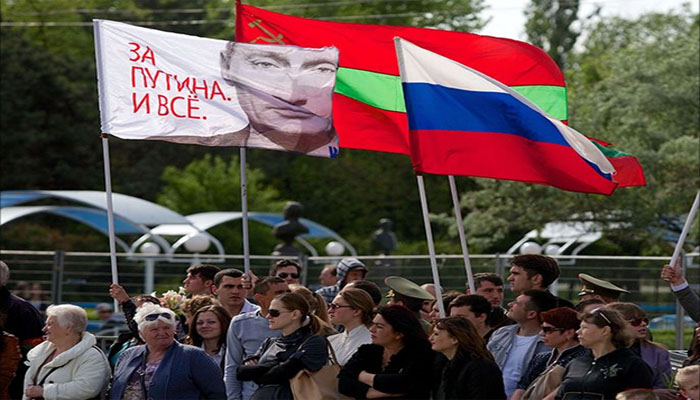
Afrasianet - After the head of the pro-Moscow region of Transnistria accused Ukraine of being behind an attack targeting senior officials in this region, John Kirby, the strategic communications coordinator in the US White House, claimed that Russia is trying to foment a rebellion within the Republic of Moldova, which borders both Ukraine and Romania.
On the other hand, Russian Foreign Minister Sergey Lavrov described any possible action against his country's forces stationed in Moldova as a "direct attack."
The Ukrainian security services intended to target prominent figures in this region located between Ukraine and Molodova, although the Ukrainians feared that any tension in the Transnistrian region would spark war on a new front.
Transnistria. It has not been under the control of the Moldovan authorities since the collapse of the Soviet Union in 1992, and it is ruled by those who are described as inclined to unite with Russia. And there are 1,500 Russian soldiers there who were sent there to keep the peace in it, and the region also depends on Russian resources that are provided to it for free, such as gas.
It includes, with its population - which is approximately 470 thousand - different ethnicities, Russian, Ukrainian and Moldovan in different proportions.
Since the beginning of the Russian-Atlantic war, the United States of America has been inciting against Moscow in order to create unrest in an attempt to repeat what happened in Georgia and what is happening in Ukraine.
Moscow denies any accusations and considers them just "baseless allegations", accusing Ukraine and behind it America of seeking to turn Moldova against it, and accusing the authorities in Chisinau of being hostile to Moscow.
Russia receives a request from a region of Moldova to join it
Dmitry Rogozin, Russian Deputy Prime Minister, says that a request was submitted to Moscow by residents of Moldova's breakaway region of Transdniestria, demanding accession to Russia.
Transdniestria - which separated from Moldova in 1990 - seeks to join Russia, which frightens the West after Reuters quoted Rogozin as saying on his Facebook account that the Russian delegation brought with him an appeal to the Russian authorities on the part of Transdniestria "concerning joining Russia," noting that this appeal, despite its "symbolic importance and not a legal feature, has become important to us now."
Rogozin also posted pictures on the Internet showing stacks of papers with signatures on them. Rogozin and his delegation visited Transdniestria to celebrate the anniversary of the victory of the Soviet army over the Nazi German army in 1945.
For its part, the Moldovan authorities stated that they prevented Rogozin from leaving the country with the petition that bore the signatures demanding to join Russia, noting that they had confiscated boxes of signatures from Rogozin at Chisinau airport, and that they would subject them to examination, according to the Associated Press.
On the other hand, Rogozin said on his Facebook page that the Moldovan authorities "obtained only a small part" of the signatures, adding that what he called the Moldovan provocations will have "serious consequences" for the bilateral relations between the two countries.
Of course, Moscow has the right to protect its citizens and Russian-speakers abroad, but it denies Western accusations that it has fomented unrest in eastern Ukraine.
Moldova, in Moldova, is a small country with a population of 2,600,000 located between Romania and Ukraine, which has been rocked for months by repeated demonstrations against the pro-European government of President Maia Sandu.
The anti-government protests raised fears in the West of the outbreak of unrest in this small country, against the background of the deteriorating economic and living conditions, as thousands of demonstrators took to the streets, to demand the resignation of the new pro-Western government.
The protests that took place in the capital, Chisinau, were called for by a recently formed group called the “Movement for the People” or the “Shor” party, headed by Ilan Shor, the pro-Russian who is leading the campaign demanding accession to Russia.
So, will the United States of America succeed in repeating the scenario of Georgia and Ukraine in Moldova?
There is no doubt that America will continue the process of incitement against Russia, but it is doubtful that it will be able to obtain what it wants.

